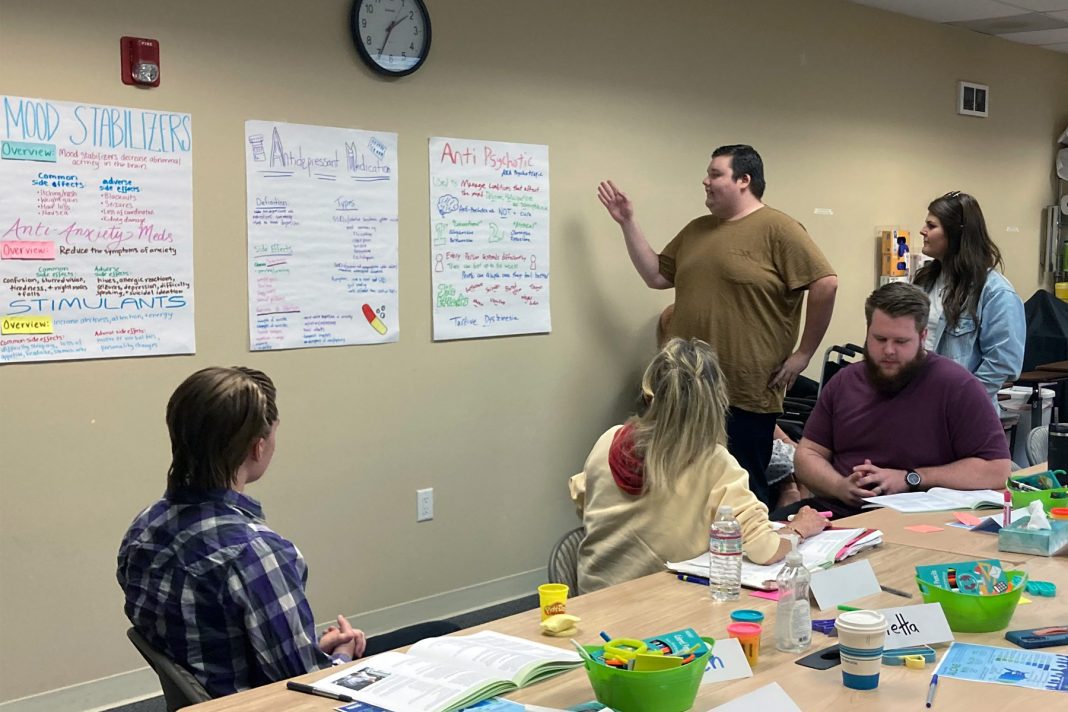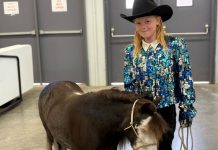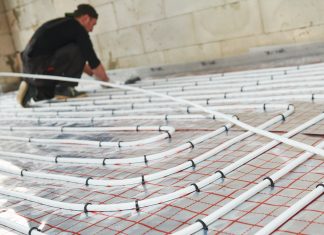At various points in our lives, many of us will become caregivers to someone, or need such care ourselves.
When it comes to caring for those with long-term medical issues in an at-home setting, Washington State requires proper training and licensing to be a Home Care Aide (HCA). And in Whatcom County, one of the best places to receive such training is the Cascade Connections Training Center.
Started by current Executive Director Allison Hill in 2012, Cascade’s training center helps both care agencies and individuals obtain Home Care Aide certifications and associated skills. Such trainings have allowed hundreds of people to properly care for those with long-term disabilities, whom Cascade has worked to enhance the lives of since its 1980 founding.
In addition to HCA certification, Cascade’s status as a licensed postsecondary educational institution allows it to provide, at-cost, an array of specialty medical trainings and Continuing Education (CE) courses for long-term care workers, as well as adult and pediatric training in first aid and cardiopulmonary resuscitation (CPR). Last year alone, Cascade’s training center granted 119 licenses for home care aides.
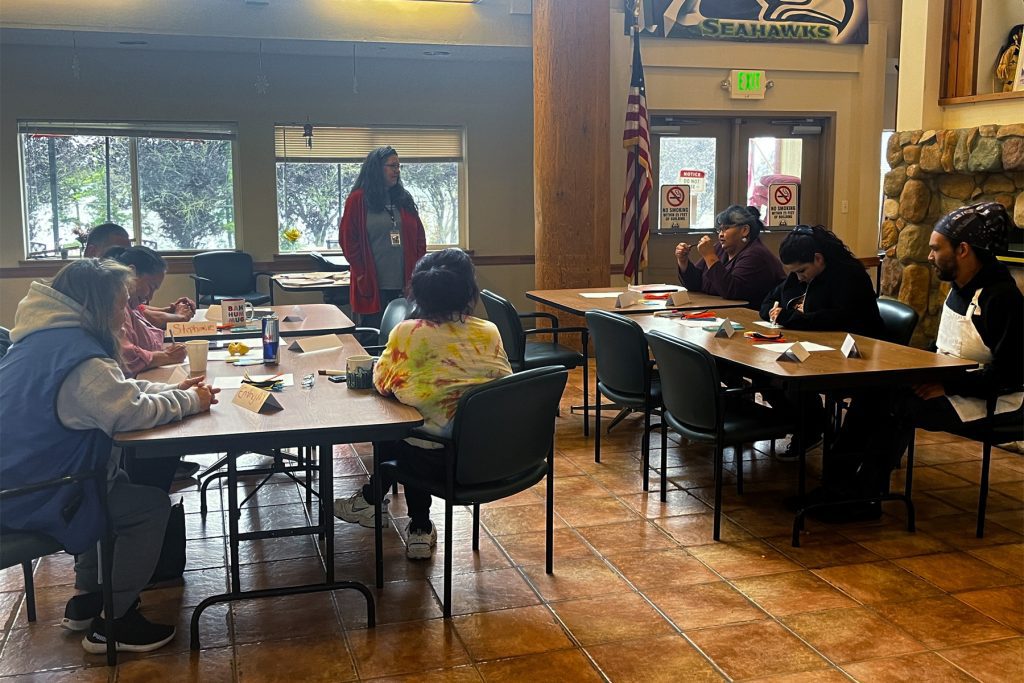
More Than a Class
The training center’s six instructors are knowledgeable, friendly, and passionate about caregiving, and that’s not just because they’ve been in the classroom for years.
“I think one of the big benefits of taking courses through Cascade is that all of our trainers have real life experience,” says Hill. “We’ve all been caregivers in some capacity, and done the work.”
Some instructors have family members with disabilities who need care, and have personal familiarity with the services available to those family members and their caregivers.
“We’ve navigated the system,” says Laurel Nickerson, Cascade’s training director. “We find that when families come to get services, we’re not only doing trainings, but we’re also helping people navigate the system.”
All of Cascade’s trainers are American Red Cross-certified, and are also approved through the state’s Department of Health and Workforce Training and Education Coordinating Board.
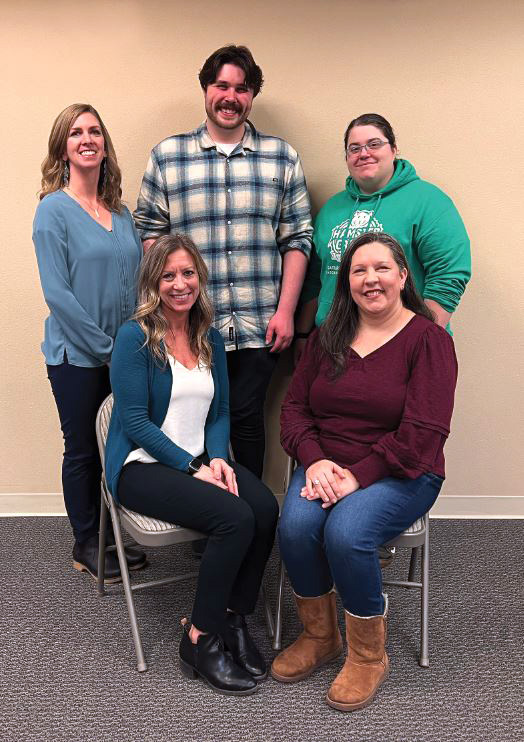
Although the practical purpose of the trainings is to grant licenses and teach necessary skills, Nickerson says any community member can take any of the classes for any reason, including simply learning about resources and information. For caregivers of family members, that could include what to ask a case manager, or what best to say over the phone to access certain services.
Empowering family members to gain skills and official state-based certifications to properly care for a loved one, Hill says, means a great deal to both instructors and those doing the learning.
“It’s really cool to see those lightbulb moments, when they’ve been struggling with a skill with one of their loved ones, and then for us to be able to show them a newer technique that works,” Hill says. “I’ve heard several times from people: ‘This is life-changing; I can do this now. I feel like I have the tools to be able to do it.’ And that’s really cool.”
Providing the knowledge caregivers need to succeed – whether focused towards dementia, mental health, end-of-life, nutrition or other categories – also makes a big difference to those receiving their care.
“Once that caregiver is trained, they come in more confident and competent,” says Nickerson. “And the individuals [being cared for] notice that; they have more trust. And that’s really cool to watch, as well.”

Things to Know
HCA training is offered roughly 6 to 8 times per year, and consists of 75 total hours of training. All learning is back to being done in-person, after the COVID-19 pandemic forced much of the learning online.
Sessions take place in both a classroom — which takes a maximum of about 20 students — and a lab setting. Currently, the training center is able to accommodate demand and not use a waitlist.
CE courses are available on a regular rotation, and HCAs need 12 hours of these courses — available both in-person and online — to achieve their HCA certification. Topics include special trainings in dementia, diabetes, mental health, and traumatic brain injuries.
Cascade Connections also offers American Red Cross courses in adult and pediatric first aid and CPR, held every other week or as demand dictates. In the future, Cascade hopes to offer even more learning, in the form of DOH-approved self-study courses.
For now, Cascade will continue doing what it does best: provide quality learning so caregivers can do their best for those they serve.
“The more people we can train, the more people can understand that people with disabilities deserve to be a part of the community,” Hill says. “And the more that we can help people understand how valuable it is to take care of our elders — whether or not they choose to be in that role after they leave here — the better we can provide them dignified care.”
Cascade Connections Training Center is located just off Pacific Highway, at 1354 Pacific Place #101 in Ferndale. See their website or call 360.714.9355 to learn more.
Sponsored





























